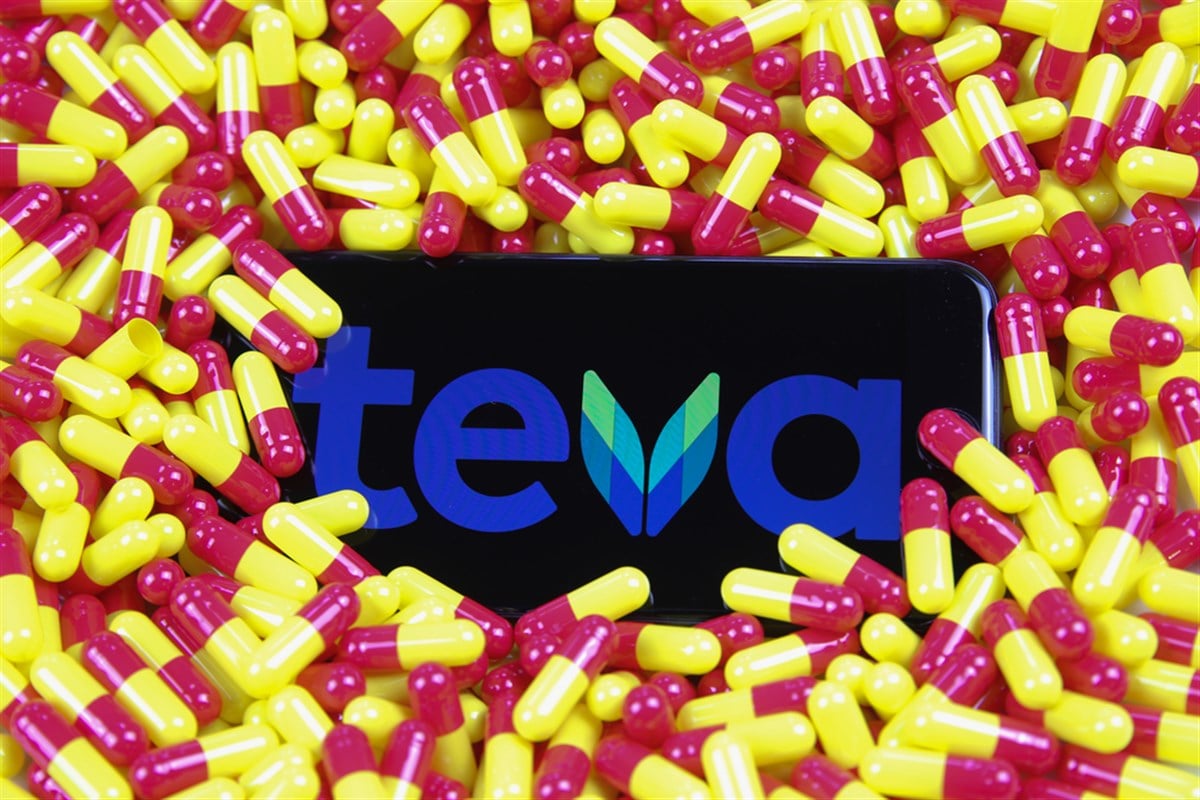
Brand-name drug costs continue to climb, but patients and insurers find respite by migrating to generic or biosimilar versions as patents run out. Generics are loved by health insurers, Medicare, and patients as they contain the same compounds and active ingredients for a cheaper price. Politicians are also in favor of generics as they love to scrutinize big pharma and their relationship with pharmacy benefits managers (PBMs). Here are 2 generic drug makers in the medical sector with long and growing runways.
Teva Pharmaceuticals: Global Generic Drug Leader
Tel Aviv-based drug maker Teva Pharmaceutical Industries Ltd (NYSE: TEVA) is a leading generic drug maker. They have one of the broadest portfolios of generics encompassing all specialties through 500 biosimilar medications. They carry their produce and their line of branded drugs. They have a well-established global distribution network, ensuring their medications reach a worldwide patient base. Some of their most popular medications are generic versions of Prozac for depression, Copaxone for Multiple Sclerosis, Treximet for type 2 diabetes, Lisinopril for high blood pressure and Albuterol for asthma.
Teva Pharmaceuticals Settles Opioid Litigation
Teva has resolved 99% of its opioid litigation cases with all 50 states in the country. The company agreed to a $4.25 billion settlement paid out over 13 years. The company will provide $1.25 billion for its generic version of Narcan, the overdose reversal medicine. This has lifted the ceiling on shares of TEVA.
Solid Growth Resumes for Teva Pharmaceuticals
Teva reported its Q1 2024 earnings report on May 8, 2024. The company reported EPS of 48 cents, missing consensus analyst estimates by 3 cents. Revenues grew 4.3% YoY to $3.82 billion, beating $3.73 billion consensus estimates. Its generics business saw revenue growth across all regions and was up 9% YoY.
Teva's Leading Medicines Drive Significant Quarterly Growth
Teva’s brand drug Austedo for Huntington's Disease revenues rose 67% YoY, reaffirming the 2024 forecast of around $1.5 billion. Teva's migraine medicine Ajovy saw revenues grow 18% YoY to $113 million. Teva received FDA approvals for Simlandi and Selarsdi, which are generic versions of AbbVie Inc. (NYSE: ABBV) developed Humira for arthritis, and Janssen Pharmaceuticals developed Stelara for plaque psoriasis, respectively.
Teva Pharmaceutical CEO Richard Francis commented, "In 2024, Teva is off to a good start, with global revenues of $3.8 billion showing growth of 5% in local currency terms compared to Q1 2023, fueled by robust growth in our generics business across all regions, and continued growth of our innovative brands AUSTEDO and AJOVY."
Teva Stock is Forming a Daily Pennant Pattern
The daily candlestick chart on Teva has a pennant pattern. This symmetrical triangle forms following a flagpole, which is illustrated as a sharp price run-up. The symmetrical triangle is comprised of lower highs that formed after the $17.13 peak and higher lows that formed after the $16.05 bottom. The daily relative strength index (RSI) is attempting to bounce at the 63-band. Pullback support levels are at $16.05, $14.54, $13.17 and $12.50.
Teva Pharmaceutical analyst ratings and price targets are at MarketBeat.
Alvotech: Pioneering Biosimilars for Global Health Solutions
Reykjavik-based biopharmaceutical company Alvotech (NASDAQ: ALVO) develops and produces biosimilar medicines in the areas of eye, bone and autoimmune disorders and cancer. It makes a generic version of Humira called AVT02 for inflammatory conditions, which was launched in Europe and awaits FDA approval in the United States. AVT04 is a generic Stelara used to treat inflammatory conditions like psoriatic and rheumatoid arthritis, ulcerative colitis and Crohn's disease. AVT04 has a license entry date to enter the U.S. market set to Feb. 21, 2025. AVT06 is a generic version of Eyela to treat eye conditions like age-related macular degeneration and edema.
Alvotech also has a pipeline of generic drugs in various stages of development. AVT03 is a biosimilar to Xgeva and Prolia and is used for spinal cord compression and bone surgery. AVT05 is a generic version of Simponi and Simponi Aria used to treat various inflammatory conditions. It's in the early development phase. AVT23 is a generic to Xolair in late-stage development used to treat nasal polyps. Alvotech partnered with Teva for AVT04 marketing and sales in the U.S. under the name Selarsdi.
Alvotech Doubles Revenue and Raises Full-Year Guidance for 2024
Alvotech reported Q1 2024 revenues of $37 million, more than doubling the $16 million in revenues from the year-ago period. The company raised its top-line revenue guidance to $400 million to $500 million and tightened the EBITDA range for 2024 to $100 million to $150 million.
Alvotech CEO Robert Wessman commented, "Pipeline development progressed briskly as well. On top of the recently announced results from our confirmatory patient study for AVT06, our biosimilar candidate to Eyela, we've now announced positive top-line results from the confirmatory patient study for AVT05, our proposed biosimilar to Simponi. We are thus on track to file marketing applications for at least three biosimilar candidates in the second half of this year.”
Alvotech analyst ratings and price targets are at MarketBeat.